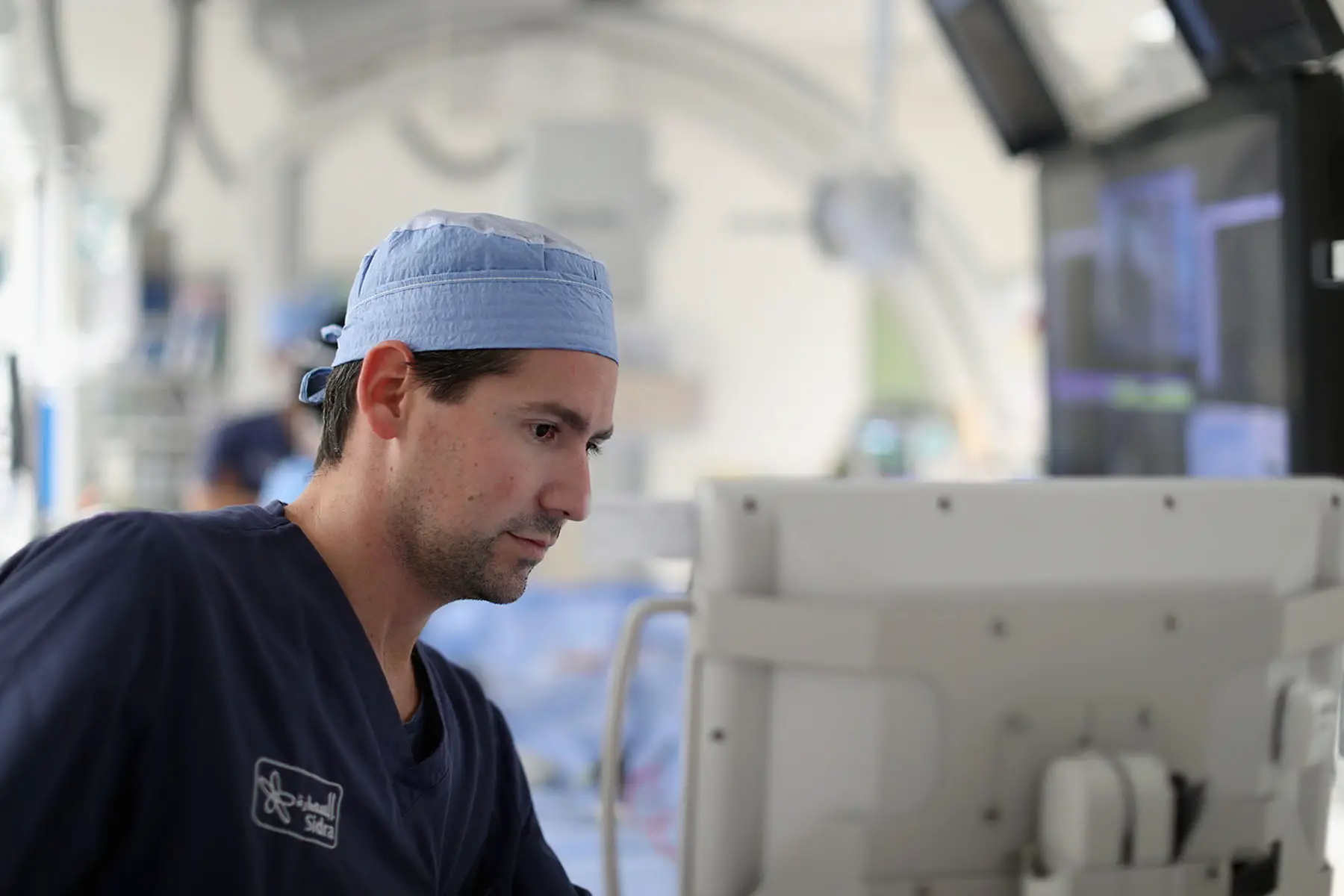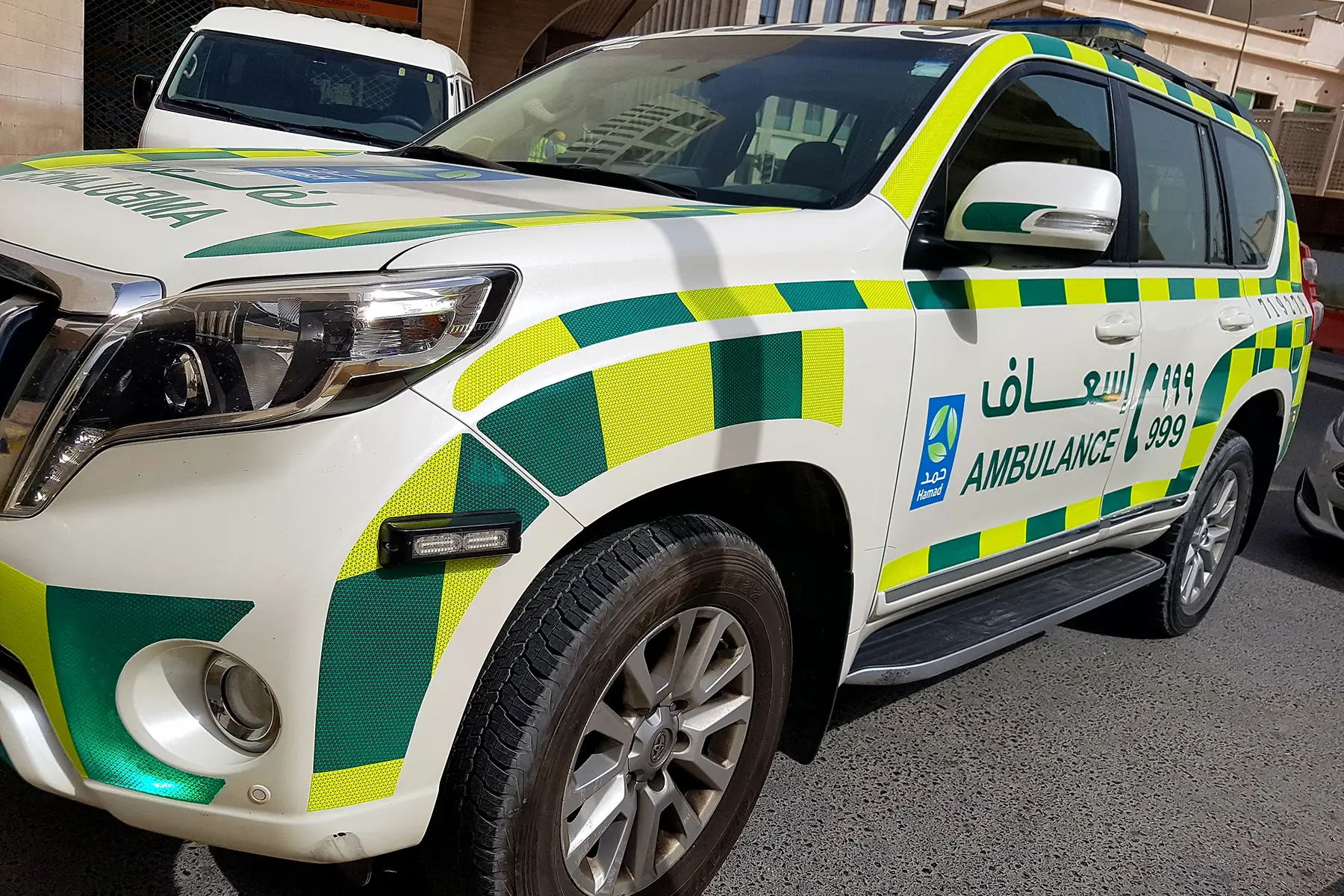Whether you’ve just arrived or lived in Qatar for years, knowing how to find medical help when you need it makes life a lot easier. The country has a strong healthcare system with both public and private options – though as an expat, you’ll likely be using the private side.
From family doctors to medical specialists, we’ll break down how the Qatari system works, where to go, and what to expect when you need care.
Continue reading for the following information:
- Overview of doctors in Qatar
- Who can see a doctor or GP in Qatar?
- How to find a doctor or GP near me in Qatar?
- How to see a doctor in Qatar: step-by-step
- How much do doctor visits cost in Qatar?
- Overview of Qatari doctors’ services
- How to complain about a doctor or GP in Qatar
- Practical medical words in Arabic
- Useful resources
Cigna Global
Enjoy peace of mind while living in Qatar with Cigna Global’s long-term international health insurance plans (12+ months). Get tailored coverage, direct billing with many providers, complex case management, and global care on demand, with access to a network of 1.5+ million doctors, specialists, and therapists.
Overview of doctors in Qatar
Qatar has a solid healthcare system that covers most residents, including expats. The system is funded through a combination of public and private health insurance, which ensures that everyone can access a broad range of medical services, including doctor visits (دكتور or دكتورة) and emergency care.
According to the World Health Organization, the number of doctors in Qatar is above that of the rest of the Gulf Cooperation Council (GCC – Bahrain, Kuwait, Oman, Qatar, and Saudi Arabia). In 2023, the country had 30.2 doctors per 10,000 residents (GCC average: 27.5).
There are no official statistics on the number of family medicine doctors in Qatar. However, in 2023, GPs treated 3.1 million patients across 31+ health clinics, so there must be at least a couple.
All doctors in Qatar must be licensed and registered by the Department of Healthcare Professions (DHP – إدارة التخصصات الصحية), which is overseen by the Ministry of Public Health (MOPH – وزارة الصحة العامة).

Family medicine doctors or GPs in Qatar
Family medicine doctors (GPs – أطباء طب الأسرة) are usually the first point of contact for most health concerns in Qatar. Public doctors work in Primary Healthcare Centers (PHCC – يتكون مركز الرعاية الصحية الأولية), which are located throughout the country. Non-GCC expats don’t have access to the public system, so they’ll need to use one of the many private healthcare services in Qatar.
While some clinics are open 24/7, others have regular opening hours. Public PHCCs are generally open from 7:00 to 23:00, Sunday to Thursday. Weekend schedules vary: some centers have reduced hours on Friday and Saturday, whereas many others are closed. Most primary care centers are also closed on public holidays.
Private clinics often have extended hours, including evenings and weekends.
GPs in Qatar handle routine medical issues, conduct basic check-ups, manage chronic conditions, and refer patients to specialists when necessary. They also maintain your medical records and help coordinate follow-up care.
Medical specialists in Qatar
If you need more specialized care, the next step is typically to see a medical specialist (طبيب متخصص). Qatar offers a broad range of specialists in both the public and private healthcare sectors, covering areas such as dermatology, cardiology, orthopedics, pediatrics, and more.
Specialists usually work in hospitals or private clinics. Public facilities are run by Hamad Medical Corporation (HMC) and typically operate from 07:00 to 15:00, Sunday to Thursday. Private clinics tend to offer longer and more flexible hours, including evenings and weekends.
Patients need a GP referral to see a specialist in the public sector. Waiting times can vary depending on the service, but appointments may take a few days or weeks. With private healthcare, you don’t need a referral to see a medical specialist, though it could help you and them identify your situation more easily. Your insurance may also reimburse more if you do have one.
Who can see a doctor or GP in Qatar?
Everyone can access medical care to some degree or another, including asylum seekers, refugees, and tourists. However, for non-urgent medical help, you have to pay large out-of-pocket costs or have health insurance coverage – either public, private, or both.

Our article on health insurance in Qatar covers the topic (and costs!) in more detail, but basically, there are both public and private doctors. While they both offer great standards of care, the difference is in the accessibility and insurance coverage.
For example, while public services are free with public health insurance, they are not as luxurious as private health centers, and wait times can be long. Private doctors have shorter waiting times and offer longer, personalized visits.
Of course, when you’re a non-GCC expat, you can’t use the public system and must rely on private doctors.
How to find a doctor or GP near me in Qatar?
If you are in a life-threatening situation, go to the nearest hospital emergency department (قسم الطوارئ). Signs are indicated in both English (emergency) and Arabic (الطوارئ). You can also call 999, which is the main emergency number in Qatar. Operators typically speak English and Arabic, but they are not likely to be native speakers, so make sure to speak clearly. They may ask you a few questions and then send over an ambulance as quickly as possible.
If your situation is less immediate (and more you looking for information), you can find doctors and GPs through your insurance provider. They’ll most likely direct you to the most cost-effective health clinic in your area. You can also check the DHP website to look for licensed doctors in Qatar.
For English-speaking doctors, you can check websites like HeliumDoc, Qatar Health and Medical, and Tabeebak. And if you need medical help outside working hours, Qatar has some on-call doctor services available. For example, patients can call 16000 for phone or video consultations with a public doctor (available every day from 07:00 to 23:00). If need be, they can be referred to an urgent care center.
You can also use a private service like First Responder, JPR Health Care Services, and MetaDoc, which are available 24/7.
How to see a doctor in Qatar: step-by-step
Step 1: Register with your preferred doctor
Some insurance providers in Qatar require you to register with one family medicine doctor or health clinic. However, even if yours doesn’t, it’s recommended to do so for practicality and familiarity.

Most private health centers allow you to register online or in person at the clinic. You will need to provide a valid ID, your residency visa, and your health insurance details. After that, you may have an initial doctor’s appointment to review your medical history. If you have them, make sure to bring your medical records, along with a list of medications you are using.
Step 2: Book a doctor’s appointment
Walk-in appointments are rare in Qatar, and most doctors require you to schedule an appointment in advance. You can do so with a quick phone call to the individual medical center or using an online service. Specialists don’t do walk-ins unless it’s for urgent medical situations.
When relying on public healthcare, you can generally expect to wait a few days to see a GP and a few weeks to see a specialist. Private doctors have shorter waiting times and can often see you the same or the next day.
Step 3: Visit the health center
When you go to the scheduled appointment, make sure to bring your health insurance card, ID, and wallet. This card proves that you’re insured, and it allows your doctor to upload any prescriptions for medications, should you need them.
Waiting times will vary based on how busy the clinic is, but you can always ask the front desk how long you are likely to be waiting. Some private health services like MetaDoc also provide telehealth services and at-home doctor visits, but keep in mind that this may or may not be covered by insurance.
Expats should keep in mind that culture may play a role during the appointment. For example, some male doctors consider it impolite to look directly in a female patient’s eyes, even when treating her.
How much do doctor visits cost in Qatar?
Public healthcare is free (or low-cost) for Qatari citizens and GCC nationals, including doctor visits and specialist care. Some services, such as prescription medications, may require a small copayment.
Of course, foreign nationals must use the private sector. Without proper insurance, a consultation with a private GP in Qatar costs around QAR 250–400, depending on the location and services provided. You may also face extra charges for lab work, imaging, and prescriptions. Specialists typically charge QAR 400–700+, depending on their specialty and clinic.
Do I need health insurance in Qatar?
Yes. Our article on Qatari health insurance explains everything in full detail, but as a quick summary:
- Health coverage is a requirement for most visas and residency permits
- While Qatari employers must legally provide basic insurance to foreign employees (including domestic workers), these plans are often limited in their coverage
- Foreign nationals looking to avoid any large out-of-pocket payments should consider getting private (top-up) insurance

There are many private health insurers in Qatar, and it’s worth shopping around to find the best deals. Aside from the home-grown health insurance providers, there are also international insurers who cater specifically to expats. These providers are ideal for residents who want to bridge the coverage gap, travel outside the country a lot, or simply prefer expat-focused care:
Overview of Qatari doctors’ services
Prescription medications
If necessary, the doctor may prescribe you medication, which you can pick up from any pharmacy (صيدلية) in Qatar. To find one nearest to you, you can use any search engine or check a website like MedArabia.
Some pharmacies are open 24/7, while others have regular opening hours. If you can’t go to the pharmacy in person, you can also order prescription medication online from a service like Kulud.
We advise expats using foreign medications to write down the generic brand name or the active ingredient of their medication. That’s because brand names can vary from country to country. For example, Prozac in the US is sold as Flunil in Qatar. However, the generic brand name is Fluoxetine.
Certain drugs are not allowed in Qatar, even if you have a prescription. You can find more information about controlled and semi-controlled medicines on the government’s website.

Medical tests in Qatar
While GPs in Qatar can do several medical tests on location, other testing needs to be done by a specialist. In case of the latter, you will be given a referral. When the results are in, they’ll be uploaded to your clinic’s online health portal or app. Some health centers may call you to let you know and discuss any possible next steps.
Foreign nationals must undergo a medical examination to get a residence permit. The measure aims to protect the health of the population and prevent the spread of diseases in Qatar. Testing includes a chest x-ray (to check for tuberculosis) and a blood test (to check for HIV/AIDS, hepatitis B, hepatitis C, and syphilis). You can find more information on the government’s website.
How to complain about a doctor or GP in Qatar
If you want to file an official complaint about a doctor or GP in Qatar, you must first raise it with the healthcare center. After that, you can file a complaint through the Governmental Health Communication Center (GHCC – مركز الاتصال الصحي الحكومي).
Your case will then be investigated. If the government decides to impose sanctions or a fine, the healthcare facility has 30 days to file an appeal.
Practical medical words in Arabic
Most hospitals and health centers in Qatar have English-speaking staff. However, it is a good idea to have a phrasebook or a translator app on your phone in case you need to explain more complicated health issues. At Hamad General Hospital, you can also request an interpreter to assist you.
You’ll also want to remember some of these medical words in Arabic:
| English | Arabic | Pronunciation |
| General practitioner | طبيب عام | ta-beeb aahm |
| Doctor’s clinic | عيادة | ʿee-yaa-dah |
| Appointment | موعد | maw-ʿid (like ‘mow-id’) |
| Pain | ألم | a-lam (rhymes with British ‘ham’) |
| Headache | صداع | sew-daah |
| Stomach ache | ألم المعدة | a-lam al-maʿ-da |
| Back pain | ألم الظهر | a-lam az-zahr |
| Fever | حرارة | ha-raa-rah |
| Cough | كحة | kaḥ-ḥa (like “ka-ha” with a raspy h) |
| Prescription | وصفة طبية | waṣ-fa ṭib-bee-yah |
| Painkiller | مسكن | mu-sak-kin |
Useful resources
- Ministry of Public Health – official government website of the national health ministry in Qatar
- Department of Healthcare Professions – official government website of the authority responsible for health professionals in Qatar
- Hukoomi – official government e-portal with information on public services in Qatar









